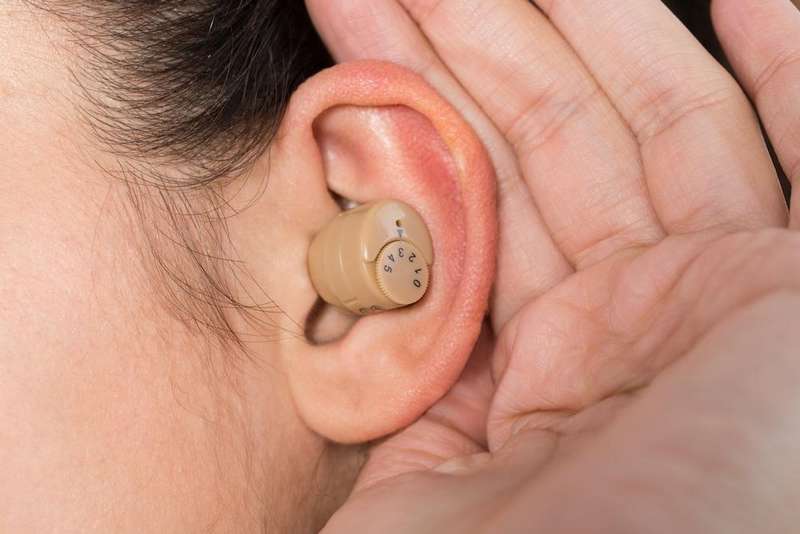If you have trouble understanding a conversation or think others are mumbling, it might be a sign that you need hearing aids. They can amplify and filter out sounds.

Hearing loss or listening impairments are most common in older adults. There are several warning signs to alert you to the fact that you have listening impairments. Below are some of those signs.
- You begin to assume people are mumbling or speaking at a low tone
- You frequently ask people to repeat themselves-especially in a noisy setting
- You prefer the television at high volumes compared to most people
- You find it difficult to understand people over the phone
- You find it difficult to understand the dialogue of a movie-especially in cinemas
- You have difficulty understanding people at a public gathering
- You find yourself more withdrawn and distant than usual
- You strain to get what others are saying, especially in a gathering
Why Do I Hear People but Find it Difficult to Understand Them?
There are different types of hearing loss. A common type is when people have an excellent reach in low pitches of vowel sounds but find it difficult in the high-pitch range of consonant sounds.

Vowel sounds have most of their energy in lower frequencies and are easy to understand. The high-pitched consonant sounds are softer and harder to understand. The high-pitched consonant sounds are most vital for speech clarity and understanding.
In general conversations, speeches might sound loud but lack clarity. It makes it challenging to comprehend what is being said. This impairment is easy to notice when you are listening from a distance. You can check this page for tips on how not to damage the ears.
What to Expect from a Hearing Aid?
Hearing aids do not correct hearing. Instead, it helps to amplify sound. It amplifies sounds in ranges where you find it difficult to listen.
Listening aids pick up ranges of sound other than human voices. It picks up environmental sounds such as bells ringing, birds whistling, wind blowing, and lots more. It is excellent for understanding distant conversation, for example, a discussion at a round table.
The technology world is advancing, and so there are significant improvements in devices such as hearing aids. With the introduction of new battery technology, hearing aids that are rechargeable have become more popular than ever before. Although it improves audibility, it cannot filter background noises from speeches. Nothing is perfect, is it? Still, a listening aid can help to improve the quality of life in people with listening disabilities.
It is a great device and is helpful in the lives of older adults.
Do I Need a Hearing Aid?

Many people find it problematic to listen to, not just older adults. Young children are becoming affected too. You can find tips here https://www.nytimes.com/2020/05/21/parenting/children-headphones-hearing-loss.html for how to protect kid’s hearing.
Below are common forms of hearing impairments:
- Congenital deafness
- Age-related loss
- Tinnitus
- Cold-related listening impairments
- Sudden/acute hearing loss
- Sensorineural hearing loss
Except you are deaf, hearing impairments usually comes on gradually and almost undetected. Family members will be the first to notice your condition before alerting you to it.
Still, how can you tell if you do have listening impairments and would need listening assistance?
Below are a few pointers to decide whether you need a hearing aid.
- Do your friends and loved ones complain about your love for loud TV?
- Do you continuously assume that people are talking in low voices or mumbling?
- Do you find it challenging to follow conversations because the high-pitched consonants are unclear?
- Do you find it hard to converse with people in general?
- Is it becoming a persistent problem for you to detect essential sounds like alarms, ringtones, and doorbells?
- Do you find it hard to get what people are saying in large gatherings?
Any of the above-listed signs might indicate listening impairments. If you are still unsure doubt about your condition, you can take a test. If the test proves positive, then you need further examination by an audiologist.
An audiologist will help to discover the cause of your impairment. They will also suggest treatment and help you make the best decision.
How Many Hearing Aids Do I Need?
If you find it difficult to listen in both ears, you will need a device in both ears.
Impairments that are age-related or cause by acoustic trauma will usually damage both ears. In this case, an audiologist will recommend two listening aids.
Since the way humans perceive sound is binaural, both ears must be fitted with listening aids to function effectively. If you use single listening assistance, the unaided ear might be in further trouble. It might unlearn how to receive sounds just like an untrained muscle.
If your ear is further damaged, subsequent treatment with listening support will help. Still, it has to take a considerable amount of training. You’ll find cheaper options for the best quality if you are worried about expensive hearing aids.
The fact that we receive sounds in both ears is amazing. It can literally save our lives. It helps us detect the direction of a moving car, a bicycle bell, or a tram. So, listening aids in both ears is essential. It helps to understand better conversation in public places.
For people to listen correctly, they need both ears working in good conditions.
The benefits of receiving sounds in both ears include:
- Improved ability to understand sounds in background noises
- Ability to filter close from distant noises
- The less auditory effort, making it less likely to get fatigued
- Improved ability to identify where a sound is coming from
Final Note
The information provided in this article will surely help you make the right decision. Remember to seek the aid of an audiologist before making any decision. Good luck.





